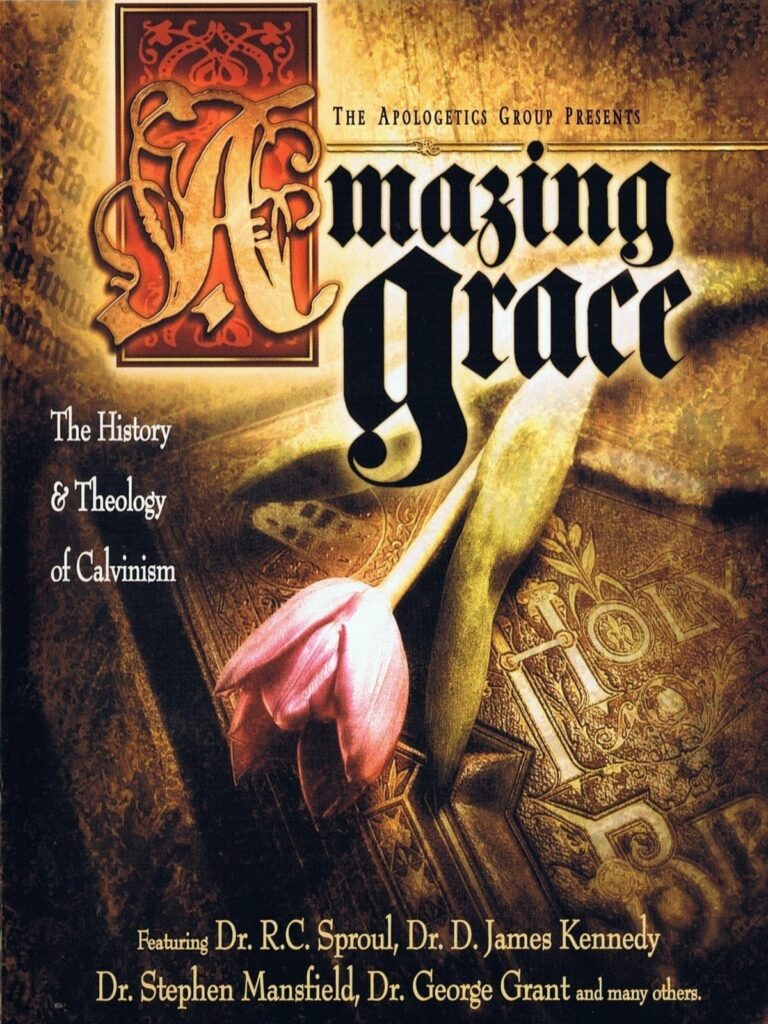
Amazing Grace: The History and Theology of Calvinism (2004), directed by James Gelet, is a comprehensive documentary that delves into the origins, principles, and implications of Calvinist theology. Through a series of interviews with theologians, historical analyses, and scriptural examinations, the film aims to provide viewers with an in-depth understanding of Calvinism’s core doctrines and its impact on Christian thought and practice. For those interested in exploring the theological roots of Reformed Christianity, the documentary is now available on https://123movies26.com/, offering accessible insight into one of the most influential movements in Protestant history.
Plot Summary
Amazing Grace: The History and Theology of Calvinism (2004) is a documentary that delves into the development and core principles of Calvinist theology. The film begins by exploring early church debates, notably between Augustine and Pelagius, highlighting the foundational disputes over human will and divine grace. It then progresses to the Reformation period, emphasizing the theological confrontations between Martin Luther and Desiderius Erasmus, which further shaped Protestant beliefs. A significant portion of the documentary is dedicated to the Synod of Dort, where the five points of Calvinism were articulated in response to Arminian positions. Throughout, the film interweaves historical narratives with scriptural analysis to elucidate the doctrines of grace and their enduring impact on Christian theology.
The documentary is structured into three main sections:
- Historical Context: This segment traces the development of Calvinist theology, beginning with early church controversies between figures like Pelagius and Augustine. It then moves through the Reformation era, highlighting the disputes between Martin Luther and Erasmus, and culminates in the establishment of the five points of Calvinism.
- Doctrinal Examination: Here, the film delves into the biblical foundations of the doctrines of grace, commonly summarized by the acronym TULIP (Total Depravity, Unconditional Election, Limited Atonement, Irresistible Grace, Perseverance of the Saints). Each doctrine is analyzed in relation to Arminian viewpoints, scriptural evidence, and its significance in the believer’s life.
- Practical Implications and Evangelism: The final section addresses the necessity of evangelism within a Calvinist framework, discussing how God’s sovereignty and human responsibility intersect in the preaching of the Gospel and the conversion process.
Featured Contributors
The documentary features insights from several notable theologians and pastors, including:
- R.C. Sproul: Founder of Ligonier Ministries and a prominent advocate for Reformed theology.
- D. James Kennedy: Senior pastor of Coral Ridge Presbyterian Church and founder of Evangelism Explosion International.
- Walter Chantry: Author and former editor of The Banner of Truth magazine.
- Thomas Nettles: Professor of Historical Theology at The Southern Baptist Theological Seminary.
- Walter Bowie: Pastor of Koinonia Baptist Church in Jackson, Mississippi.
These contributors, among others, provide a multifaceted exploration of Calvinist theology, drawing from historical, biblical, and practical perspectives.
Production Quality
The documentary is noted for its high production values. It effectively combines interviews, historical reenactments, and visual aids to present complex theological concepts in an accessible manner. The cinematography and editing contribute to a coherent and engaging narrative flow, enhancing the educational experience for viewers.
Reception
Amazing Grace has been well-received within Reformed circles for its thorough and articulate presentation of Calvinist theology. Reviewers have praised its depth of research and commitment to scriptural authority. For instance, a review on Challies.com commends the documentary for being “well-produced, thoroughly researched and, most importantly, built firmly on the foundation of Scripture.” Additionally, the inclusion of diverse voices within the Reformed tradition has been highlighted as a strength, providing a comprehensive overview of the subject matter.
Conclusion
Amazing Grace: The History and Theology of Calvinism serves as a valuable resource for those seeking to understand the foundations and implications of Calvinist thought. Its structured approach, combined with insights from esteemed theologians, makes it a compelling educational tool for both individuals and study groups interested in Reformed theology.fun!
